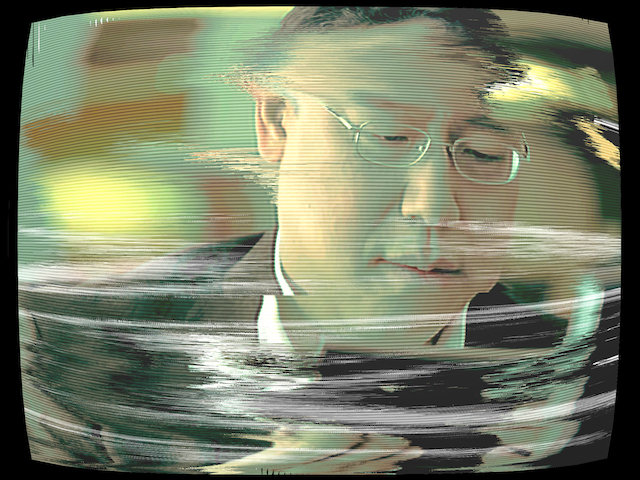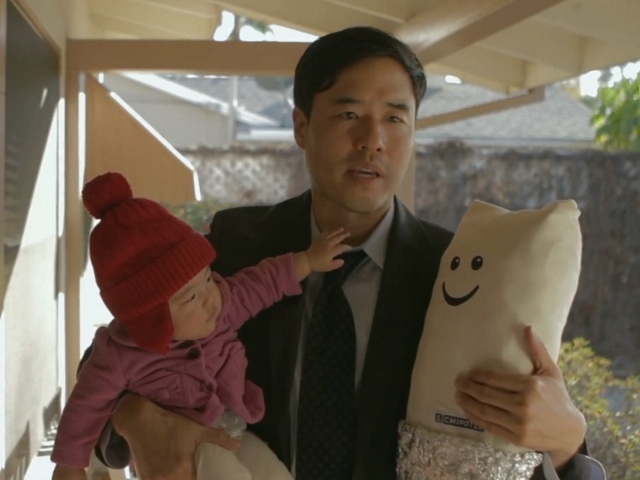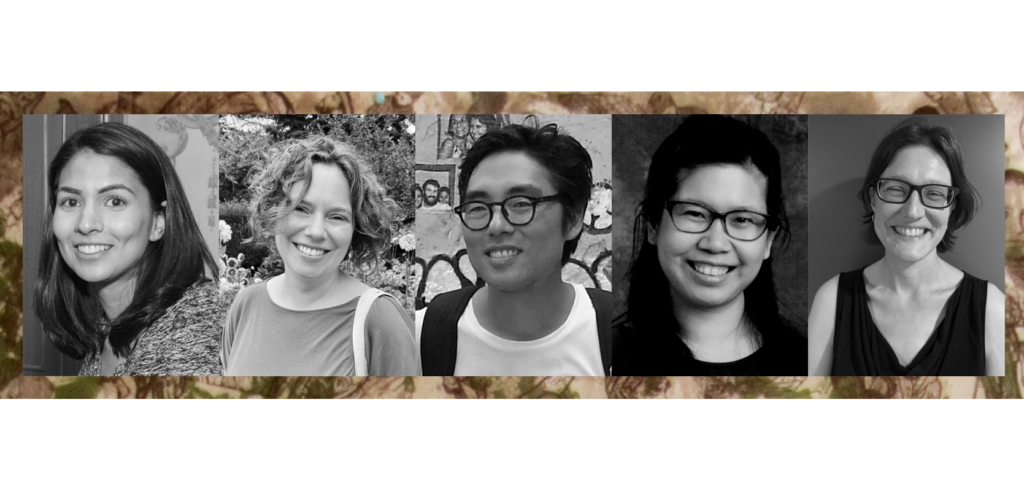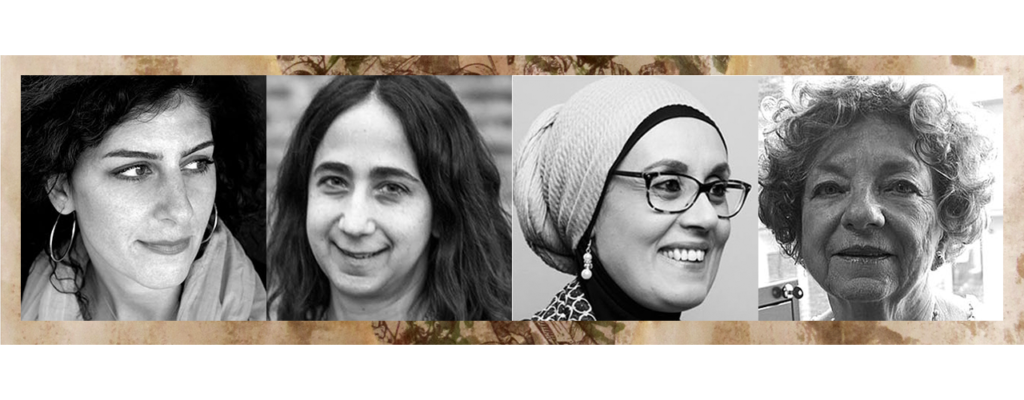Out of a full-time job and wondering if his first book would ever hit the shelves, Ed Lin briefly ventured out before the camera

October 12, 2016
In February 2002, the dot-com I had been working at creaked to a close.
Valentine’s Day was our last, a Thursday. I remembered reading in a management book that it was ideal to let go of people on a Thursday. It would give the stricken employee a long weekend to soften the overall blow, and, administratively, it would provide the employer the Friday to reset and clean up the workstation for the cheaper replacement on Monday.
There were no replacements coming in for any of us on Monday, but day jobs were off my radar at the time. Jobs were pretty much off America’s radar. This was only a few months after 9/11 and people were still doing some soul-searching after the first holidays since the terrorist attack.
I myself was heavily contemplating my future. Kaya Press was supposed to have published my first book, Waylaid, already. I think the original “pub date,” as we say in the industry, was in September. Kaya was, as it is now, a nonprofit press and apart from the usual burdens placed upon those eking by, its office was located in the so-called Frozen Zone, the heavily policed area that circled the ruins of the World Trade Center. At times the area would be shut down completely and nobody was allowed in. The blocks were as quiet as skyscraper graveyards.
The odd thing is that the last time I saw the World Trade Center was in August 2001 when Sunyoung Lee, the editor of Kaya, and I were coming back from seeing the extended version of Apocalypse Now and got out at the wrong stop. Boom, there were the towers in front of us. It was almost midnight and we both remarked on how cool they looked, shimmery and silver, stretching to the sky.
She was going to publish my book pretty soon and possibly the next time I saw the Trade Center, I was going to be A Guy With a Book.
After 9/11, after my job was gone, there were only questions about my book, mainly, when will it come out? Kaya Press was screwed. They couldn’t get phone calls or mail on a regular basis. On top of that, Kaya’s distributor was just outside the Frozen Zone and they were screwed, too. Shipments weren’t going in or out. One of Kaya’s staffers suggested that Waylaid be published as a print-on-demand book. I had visions of some piece of shit with a Kinko’s spiral binding and clear plastic cover.
But luckily, as I recall, a grant came through. I can’t remember for sure, but it may have been to help arts organizations in the Frozen Zone.
There was a trickle of hope regarding my book’s publication. Early March, I was told. Then mid-March. Then late March. I had to cancel two planned readings for the book launch.
I had to become Buddhist about it and reject the materialism of having a firm pub date. I would have gone nuts from the anxiety if I didn’t. Besides, I needed my mind clear to use my newly free days to write write write.
Of course, it didn’t work out like that at all. Without a full-time job to irritate me, I was finding it difficult to write at any time, day or night. I needed sand in my shell to make pearls.
My wife Cindy, an actor who was still saddled with her day job, suggested that I give acting a shot. I had done stupid scriptless stuff on film and on stage before, but I had never had an actual audition or, gasp, an agent. I didn’t do too much, Cindy told me, a compliment in the acting biz, especially since we referred to a rather hapless actor as Do Too Much Guy.
Acting, what the hell, I thought. It would get me out of the apartment, where I was buying Atari 2600 video game cartridges on the computer instead of blasting out words on the same keyboard. It would help with the book-publication anxiety and the book-writing anxiety, right? Maybe there was going to be an actor as a character in a future novel and I’d have to know his possibly awful journey.
Cindy checked in with her acting agency and the principal, Jadin Wong herself, was willing to have a look at me.
Jadin (pronounced jay-DEEN) was a legendary actor/dancer/singer who had become an agent. Now she repped nearly every Chinese railroad worker you saw swinging a pickaxe on stage or on TV. As a young woman, Jadin had performed at the Forbidden City, the legendary Bay Area Asian American nightclub. Hell, there was that famous picture of her chatting with Bogie and Bacall at a table.
By the time I met her she was already in her 80s, wizened and wise. Her office was within her expansive apartment in midtown. It looked like the colorized version of the apartment in I Love Lucy, a gaudy anachronism. Jadin gave me some so-called sides (which are a few script pages given to actors to audition with) and asked me to read them for her. She puckered her lips as I earnestly read my lines. When I was done she didn’t say anything, just shrugged.
I’ll call you, she said.
Later that week, Jadin got in touch and said she’d be willing to send me out, which is different from taking me on as a client. If I landed something she would get a standard agent’s cut and if I didn’t she could drop me at any point like a sucked-clean popsicle stick.
Cindy took pictures of me and picked out one for my headshot. She liked the one with me smiling, the only one I didn’t like. She knew the biz better than me, so we went with her choice.
Waylaid was delayed again. Early April, I was told.
My first audition was a nightmare. It was held in an office that had a waiting room adjacent to the actual audition room. A split-level door separated the two rooms and for some reason, the top half was kept open, which meant that everybody could hear everybody else’s audition. It was for a low-budget film set in Chinatown and the director and producers were Asian American. The part we were all reading for was the uninteresting brother of one of the leads.
(It must be stated that I had made it clear from the beginning that I wouldn’t go out for any roles that required accents—otherwise I would have had so many more auditions.)
About 20 of us Asian dudes were waiting. The auditions were running late and due to scheduling, I was going to be the very last person to read sides. I knew a few other actors, through Cindy, and chatted with them casually.
I didn’t know you acted, Ed, one of them said.
Another asked, Aren’t you a writer?
Well, my book’s been delayed, I said.
When’s it coming out?
You tell me!
I realized then that actors typically have friends who look like them because one gets to know best the other people auditioning to play the same roles.
After more than an hour, it was finally my turn. The three people of power in the room looked tired and irritable. They responded only minimally to my please-like-me-I’m-the-new-kid-in-school greeting. I launched myself into the part, hoping to enliven them a bit. When I turned to the second and last page of the sides, the director held up her hand and said, Thank you.
My heart faltered. Everybody else had read both pages. I knew this because I had heard their auditions. No one else had been cut off.
I have felt the burn of rejection as a writer. That was mild compared with this. Believe me, no “Thank You for Submitting” letter or email can sting like an in-person eyeroll and sigh. It’s one thing to have one’s art rejected. This audition felt like a dismissal of my whole person. I felt repulsive. A smelly stray dog being shooed away from sidewalk brunchers.
That weekend the director called me directly at home, using the number on my headshot and bypassing my agent. (My wife told me later that this act is a big no-no before the actor has been offered and accepted a role.) Was I interested in showing up on set this coming weekend to be a background actor? For as long as 12 hours? For no pay?
Yeah, sure!
Well, wait, she said. We’re not sure if we need you, yet. We just wanted to know if you were interested.
Huh? Well, I’m interested.
Okay, we’ll call if we need you.
The director sounded a little triumphant, as if she confirmed that she had power over me, the lowly wannabe background actor.
Soon after, I landed an interview with a former Chinese American NYPD detective. At the time I was still nominally writing the first of what would turn out to be a series of mysteries set in Manhattan’s Chinatown in the 70s. My guy had been there, at the Chinatown precinct, and at that time. Now that he was retired, he could talk about anything. I was going to meet him on Sunday at his church, after services.
The night before I was going to meet the retired cop, that director called me up. Ed, are you interested in being a background actor tomorrow?
Uh, I’m going to an interview tomorrow.
What time?
Around noon.
When are you going to be done?
I don’t know.
Do you think you’ll be done by two?
I really don’t know. (I probably would be but the director was getting pushy. Pushy people make me turn opaque and concise.)
We’d need you by two.
I can’t do it.
Oh, well. Maybe a future shoot, then.
I hung up, aware that the power dynamic had changed. She now needed me so badly! She had played hard-to-get and now she needed a date for the prom. Well, more like she needed someone whose look screamed “Chinatown!” while walking back and forth for no pay behind the real actors—the ones who were allowed to give a full audition.
Waylaid was now coming out in mid-April, I was told.
About a week later, Jadin called me and left me a message to call her back, so I did.
This is Jadin Wong.
Hello, Jadin? This is Ed Lin returning your call.
Who?
Ed. Lin. You’re my agent.
Are you Caucasian?
No. I’m not. I’m Asian. I’m a big guy. I wear glasses and laugh a lot.
Oh. You sound Caucasian!
I was quickly losing faith in my representative. Not remembering me or that she had even left me a message was disconcerting to say the least. I didn’t have much of a choice, though, and besides, she had an audition for me for Law & Order. I gasped. This could be big money! Exposure! And fame! Man, everybody would want to buy my book! When/if it ever came out!
The show was looking for a heavy-set Chinese criminal and there were mild jokes about his weight in the dialogue. No accent, though. We were clear on that front!
The night before the audition, I attended a play reading at the Korea Society that Cindy was acting in. We ran into one of Jadin’s assistants. She looked disappointed when she saw me in person.
Oh, Ed. You look fatter in your headshots.
I’m not fat enough for the audition?
Maybe not. Your scenes would be with Vincent D’Onofrio. He’ll be making the fat jokes.
He’s fatter than me, isn’t he?
Maybe they can do something. There aren’t a lot of fat Asian male actors.
After the reception, we went to Outback Steakhouse, a two-block walk from the Korea Society. I chowed down on a Bloomin’ Onion and red meat.
My second audition was a world away from the first. The Law & Order franchise was set up in studios in Chelsea Piers, an upscale development on Manhattan’s West Side.
As I waited, I evaluated my fellow actors, ticking them off one by one. Skinnier than me. Way skinnier. That guy? I was fatter than him in grade school. What the hell’s this walking stick doing here?
Boy, was I getting smug. Can you blame me? I was going to win by fat-man forfeit.
Then the elevator rumbled. This guy came in. He was obese and tattooed. I’ll bet he snored like a walrus. He sat down and crossed his arms.
I could see it now. The weak fat jokes (“What’s the rush? Got a date with a jelly donut?”) would work with that one.
I was called into the office of a kind and helpful middle-aged white woman. She would have made a great high-school counselor. I could have asked her, Should I be doing this, Mrs. Fredrickson?
Instead, we read through the sides and she handled Vincent D’Onofrio’s lines. I actually made her laugh. Now this time, she said, try to act more cagey, more suspicious. Not only did I get to finish the sides, I was now given adjustments. It’s a good sign when an actor is given some direction while auditioning because it shows that the casting agent sees some potential. We ran through it again and she said thank you. I knew I wasn’t going to get the part, but it was comforting to know that I gave my best audition.
The sheen quickly wore off, though.
Two auditions and zero booked gigs. I was feeling like a loser. At least rejection in the acting world was immediate. It didn’t take months or years of writing to get a rejection letter.
My efforts and failings in my tentative acting life were however already taking a toll on my psyche. I had to read and become familiar enough with (if not memorize to really impress a casting agent) the sides, and one can’t really do that successfully without a high level of willed optimism. Such positive thoughts must also see one through the trip to the audition, the waiting room and the audition itself. I’d already seen so many others who had given into the cynicism. I could see it in their body language. Slumped over in their chair, arms crossed. Why the hell am I here, I never get anything, it’s so humiliating just being here, etc.
That posture and attitude are standard operating procedure for the writing process, but for actors it is deadly.
I am usually irrepressibly buoyant, but I was beginning to feel like I was losing air. There was a small puncture wound somewhere.
Waylaid would definitely be out by early May, I was told.
In mid-May Jadin called me to try out for a Time Warner Cable ad. A commercial for something I’d actually heard of! Great!
Then I sort of took a crowbar to my own shins. Aw, I’ll never get it. It’s just a waste of time for me to go in. My goddamned book still isn’t out.
I was feeling resentful during the short subway ride to the audition and I carried it with me. Oddly, I was called in to audition for the director almost as soon as I walked in the door.
He was a white dude with dreadlocks and also… the back of a mullet? Later I learned that directors of commercials tend to be a little wacko.
I spat out the lines with a genuine edge.
That was great, he declared.
Oh thank you, I said. But I was really thinking, Aw, go to hell. No adjustments, no nothing. That was it. The audition couldn’t have been longer than 15 seconds.
When I got home, I found out that I had been placed on hold, which meant that I was one of the finalists for the part. I was stunned. More so when I was formally cast a few days later. The shoot was going to be in two weeks.
A miracle happened before we actually shot the commercial. Waylaid was published. Kaya’s distributor mailed a box of them to me and I still remember taking the books out, smelling them and rubbing them against my face. My puppies.
I had my lines down cold the day of the actual shoot. Hey, I could knock this thing out in 15 seconds again! The commercial was being filmed in a giant studio in the West Village that had the most boring exterior. Passersby wouldn’t know it was a studio.
Well, as soon as I was done, I was going to hop on a Greyhound and go down to William and Mary College in Virginia. Back then, the Asian American Writers’ Workshop had something called the Caravan, a program under which schools would pay to bring Asian American writers out to their campus to read their books and talk. Let’s shoot this and then I can get out of here and be a real writer, I thought.
When I got in front of the camera, the director padded up to me and said softly, We’re actually going to throw out the script. You’ve improvised on-camera before, right?
Oh, yeah, I said. But I was really thinking, Holy shit, what the fuck?
Then I caught myself. I was a writer. I had to carefully register every feeling, and experience the fear fully.
The product, which wasn’t disclosed at the audition, was a Time Warner DVR that hadn’t been released yet. The director wanted me to talk about why I loved it so much, this thing that I had never used or seen. I dug deep into myself and found the kid who could BS his way through class presentations. I talked crazily but confidently. I had no idea what I was saying and forgot immediately when I was done.
After two minutes of my automatic talking, the cameraman looked at the director and nodded.
The director asked, Are we good?
We’re good, the cameraman said.
Two hours later, I was sitting in a seat on a bus far from the bathroom in the back. I was good.
Time Warner’s DVR cable box was delayed a bit so my commercial didn’t air until more than a year later. By that time I had a new day job, editing at a financial magazine and site. And I was a published author. A bunch of my co-workers had gone to Waylaid’s Amazon page, and I think two people actually bought the book.
At my day job we had a number of flatscreens mounted around the newsroom tuned to different channels. After I returned from lunch one day a bunch of my co-workers gathered around me.
Ed, did you do a commercial?
I did, but I shot it a while ago.
We all just saw it! You were hilarious!
The managing editor came out of his office. I thought he was going to ream me, since one of the codes of being a financial journalist is to not seem biased one way or another about a company, much less promote a commercial product made by a publicly traded firm.
Instead, he grabbed my arms. You are awesome, Ed! I didn’t know you could act!
The me-who-wasn’t-really-me in my commercial was my doppelganger. People I knew in other states told me they had seen my commercial. One friend said his mother in Hawaii said hi to me every morning when my commercial reliably came up daily for almost a month.
I never actually saw my commercial air. The closest I came was when I was in the kitchen, washing dishes during commercials when I heard a familiar voice—mine!— on the TV in the living room. I ran in to catch the last syllable but the screen had already moved on to the next ad and it was too late. You see, although a character I played was promoting the Time Warner DVR, we didn’t have the device ourselves.
In a way, that situation summed up my experience with acting. I was literally not buying it at all.
My brother-in-law, who acts occasionally, noted that the conventional actor’s life is one marked with rejection and dissatisfaction. Even if you end up landing a lot of parts, he said, 95 percent of them, you don’t want.
Hell, I didn’t really want to be plain brother, a target of fat jokes, or a DVR pitchman. Why would I go out for those roles? It was just ego-tripping for me. If I really had the acting bug, I would have seen them as baby steps to that dream role on Fresh off the Boat or Dr. Ken, two shows that wouldn’t appear until more than a decade later.
Acting, and deriving satisfaction from it, requires going full steam ahead, audition after audition, and playing one lackluster role after another until your number comes up. Or, if you’ve made a lot of money along the way, to create and produce the show you genuinely want to be in.
I didn’t genuinely want to be an actor. I hadn’t been truly happy to get that commercial. And I didn’t look forward to landing the next project.
I told Jadin shortly after the shoot that I didn’t want to audition anymore. I told her assistants, as well, in case she still didn’t know who I was.
In recent years, however, I have on occasion ventured out before the camera, always for friends who asked me to. It’s fun for me to act in the purest sense, playing different aspects of myself and without the hard edges of auditioning, agents, and expectations. It’s like singing karaoke with friends as opposed to trying out for American Idol.
Cindy and I both acted in the music video for “Home: Word” by Magnetic North and Taiyo Na, playing earnest middle-aged parents trying to connect to their young adult kids. I actually starred as an undateable loser (a big stretch for me) in a short film by Derek Nguyen (who I met at the Asian American Writers’ Workshop back in the day) called The Potential Wives of Norman Mao that played the festival circuit and miraculously went on to Cannes.
Strangely, though, no one’s ever asked me to play a writer. Maybe I’m no good at it.



